cell bio chap18 cell cycle control system pt 1
1/17
There's no tags or description
Looks like no tags are added yet.
Name | Mastery | Learn | Test | Matching | Spaced | Call with Kai |
|---|
No study sessions yet.
18 Terms
Which of the following is NOT a phase of the cell cycle?
a) G1
b) S
c) G2
d) G3
D
the phases of the cell cycle consist of the M phase (prophase to cytokinesis) and Interphase (G1, S and G2)
True or False: The concentration of Cyclin-dependent kinases (Cdks) remains constant throughout the cell cycle.
True
Cdk alone is inactive but its concentration remains constant
Cdk + Cyclin (regulatory subunit) = active Cdk
Cyclin’s concentration is the one that varies
The ________ phase is when DNA synthesis occurs.
S (it’s an important phase bcuz before cell division cell must double in size)
What explains the delay between the rise in cyclin levels and M-Cdk activity?
a) Protein degradation
b) Gene transcription
c) Phosphorylation and dephosphorylation
d) Cyclin inhibition and activation
C
How is M-Cdk activity turned off?
a) Through phosphorylation
b) targeting M-cyclin for destruction
c) By inhibiting Cdk expression
d) Through nuclear export
B "(this targeting for destruction is specifically done by UBUQUITIN)
attach slide 11
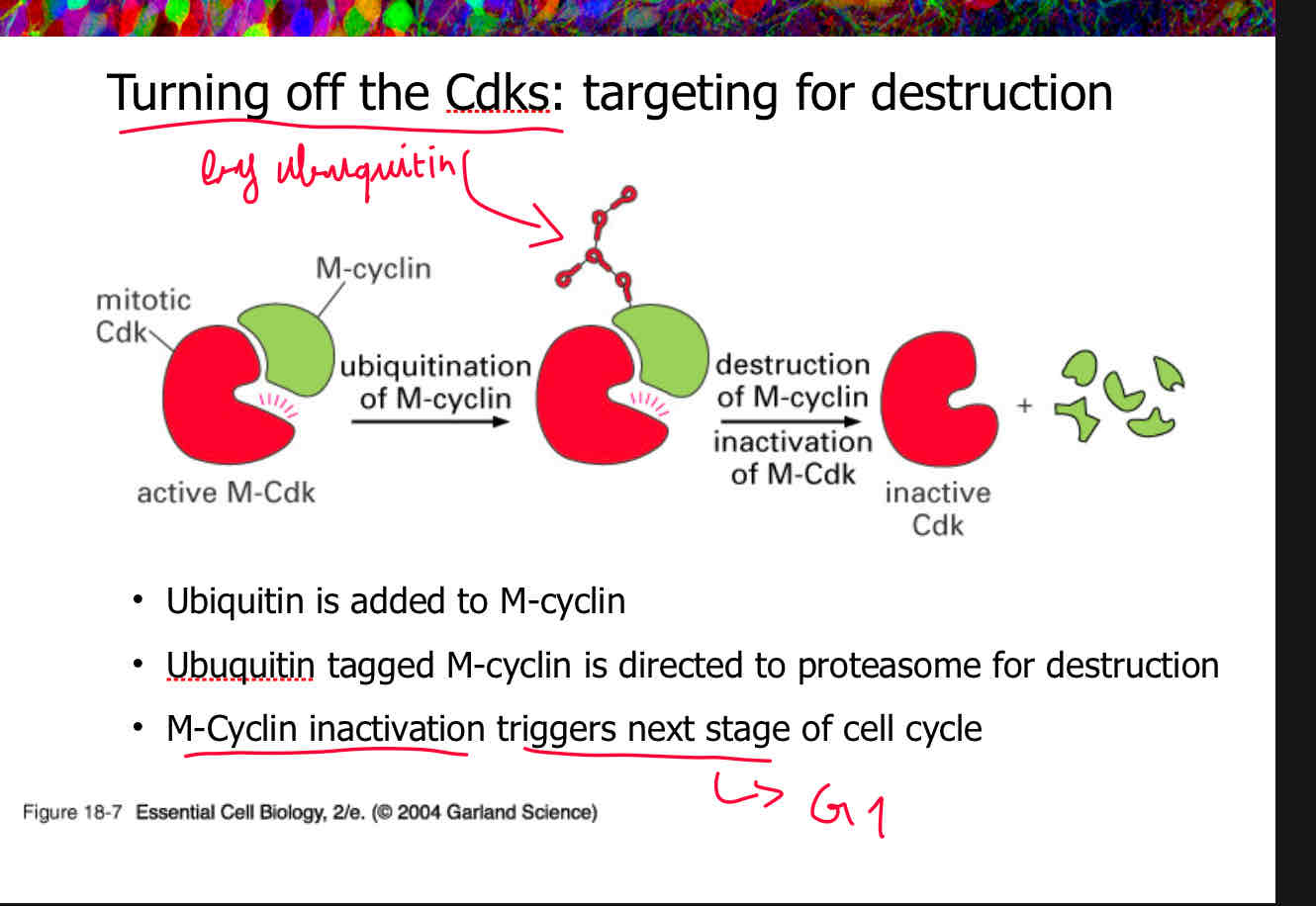
Cells that stop dividing and withdraw from the cell cycle enter a state called ________.
G0 phase
True or False: All cell types have the same cell cycle duration.
False (simpler organism have shorter cell cycle time (low # of DNA), duration of cell cycle can also be impacted by the role of the cell)
True or False: M-cyclin concentrations remain constant throughout the cell cycle.
False
attach slide 8
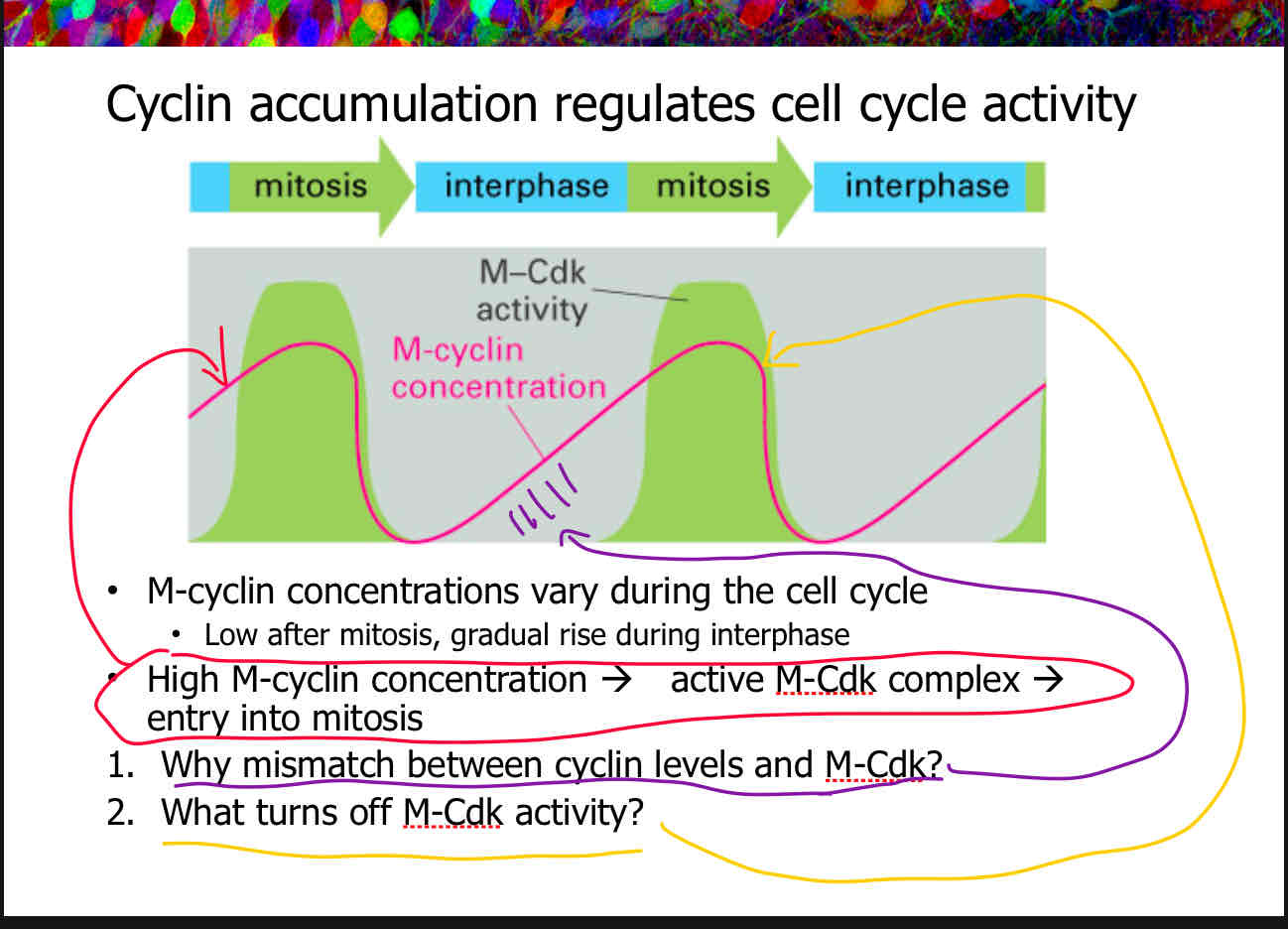
Which of the following occurs during interphase?
a) Chromosome segregation
b) Nuclear envelope breakdown
c) Continuous cell growth
d) Cytokinesis
C
attach slide 5
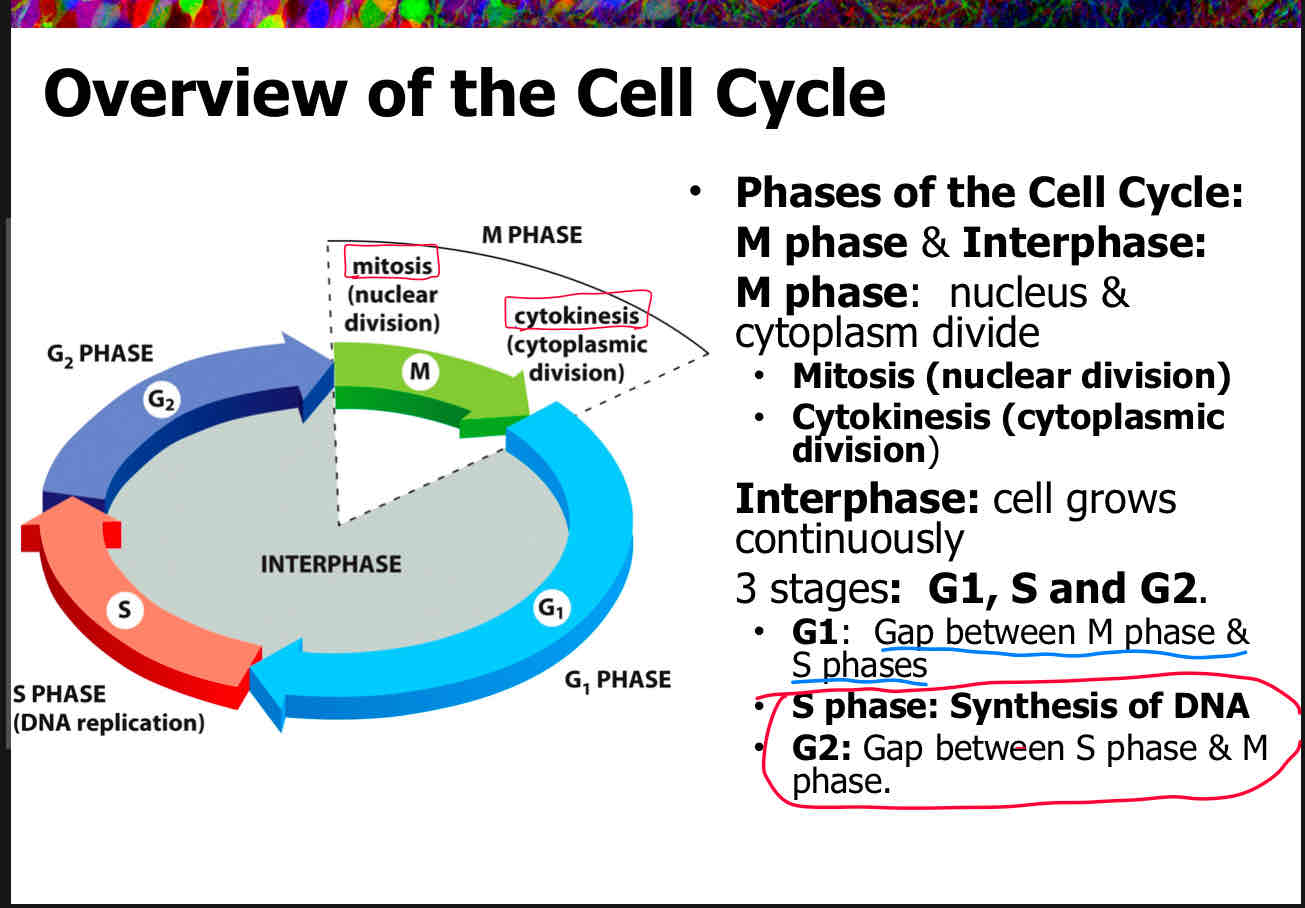
What is the primary function of Cdk inhibitor proteins?
a) To block assembly of cyclin-Cdk complexes
b) To activate Cdks in cell cycle
c) To promote cyclin synthesis
d) To initiate DNA replication
A
attach slide 16
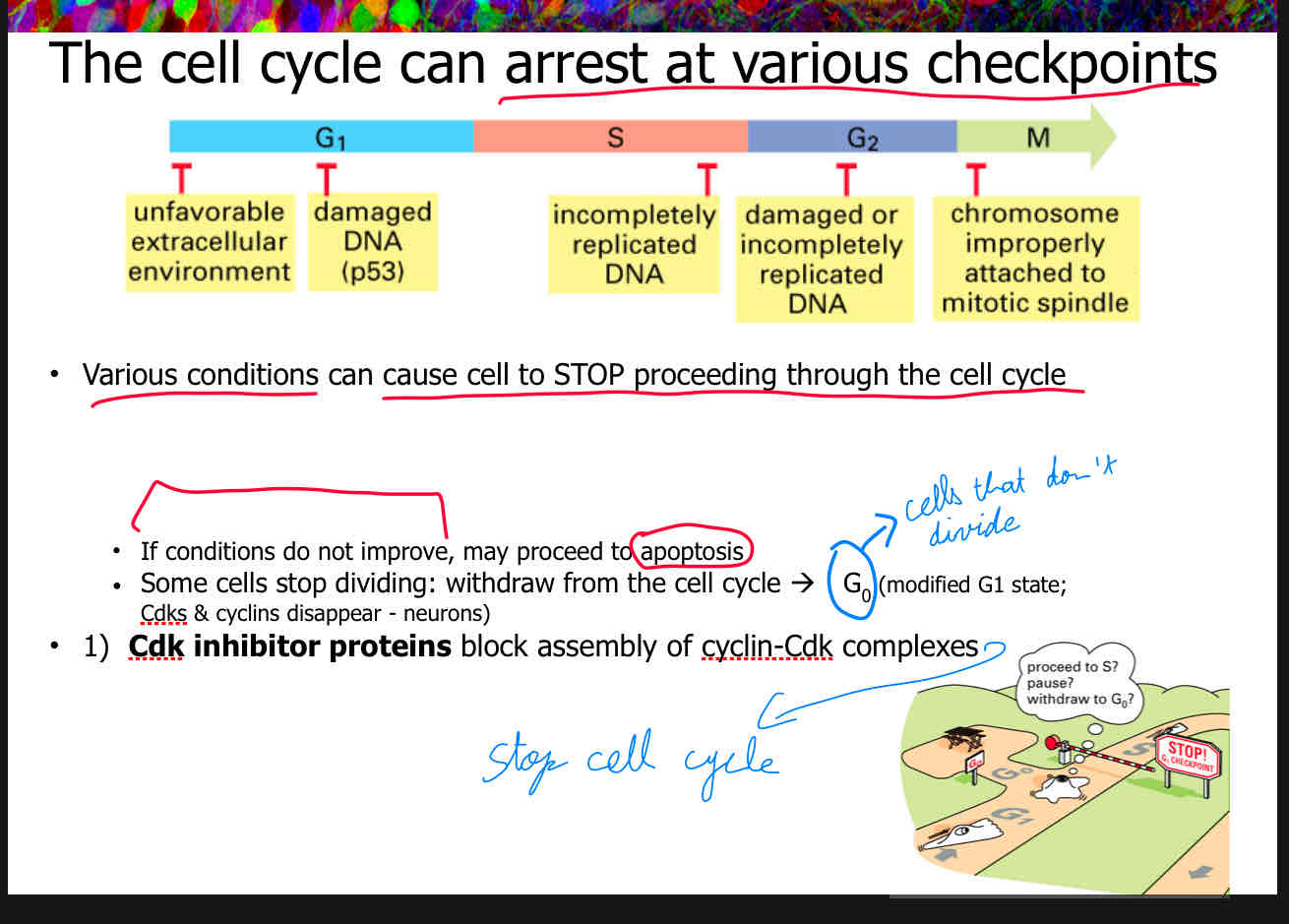
A researcher observes that a certain protein is rapidly degraded at the end of mitosis. This protein is most likely:
a) A Cdk
b) A cyclin
c) A phosphatase
d) A kinase inhibitor
B
A researcher observes that a certain protein's concentration fluctuates throughout the cell cycle, peaking at the start of S phase and dropping at the start of the M phase. This protein is most likely:
a) A active S Cdk
b) A S cyclin
c) A phosphatase
d) A kinase inhibitor
B
attach slide 12
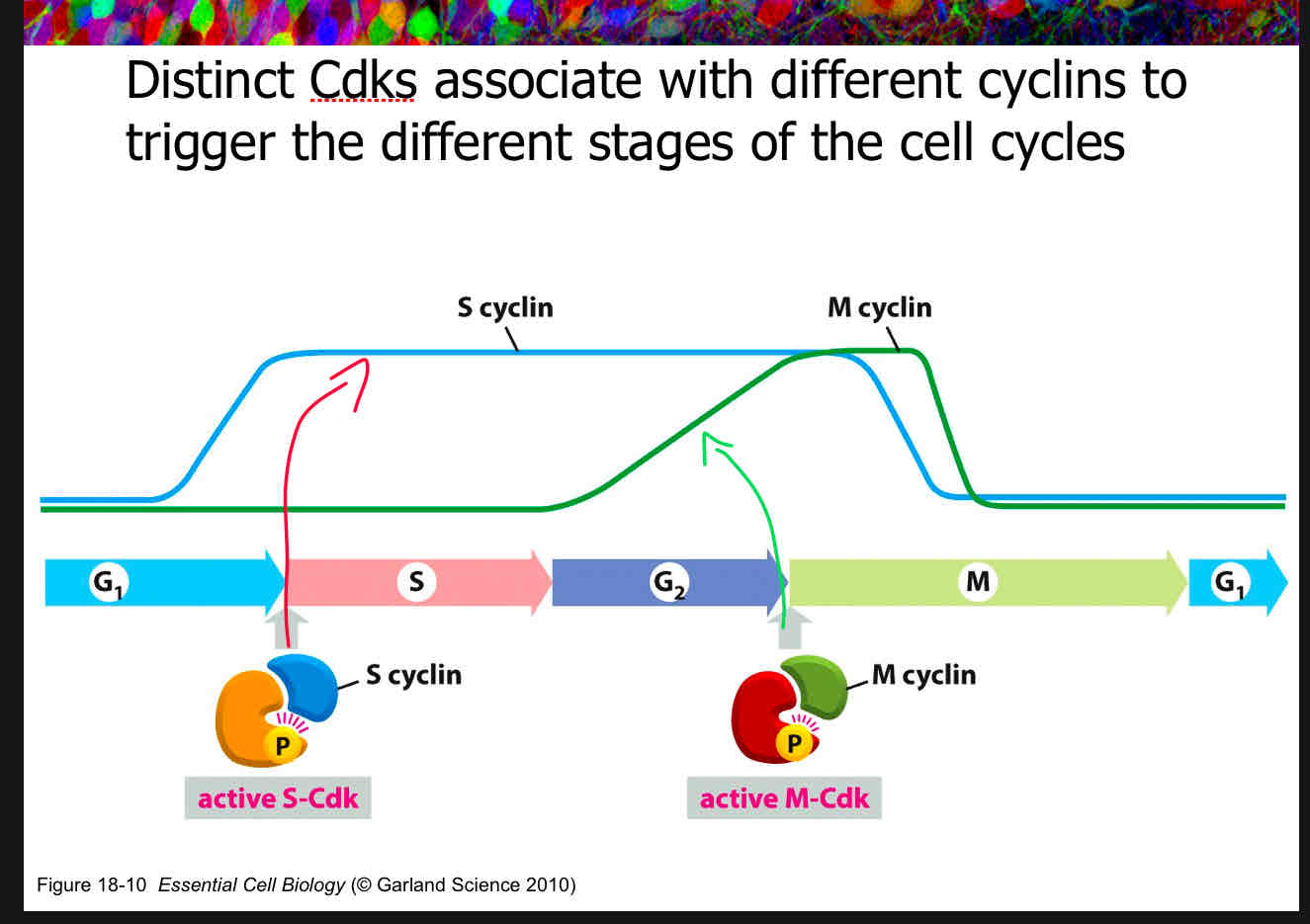
True or False: Cdks alone are active and can initiate the cell cycle by phosphorylating proteins.
False (they become active by phosphorylation/dephosphorilation when attached to cyclin)
In an experiment, cells are treated with a drug that inhibits the activating phosphatase of M-Cdk. What would be the expected result?
a) Cells would be unable to enter mitosis
b) Cells would arrest in G1 phase
c) Cells would exit mitosis prematurely
d) Cells would skip S phase
A
A mutant cell line is found to have constantly high levels of M-cyclin throughout the cell cycle. What would be the most likely consequence?
a) The cells would be unable to enter mitosis and remain in G2
b) The cells would be stuck in a continuous mitotic state
c) The cells would have a prolonged G1 phase
d) The cells would skip the S phase
B
Explain the role of ubiquitin in regulating the cell cycle.
When M-cyclin needs to be inactivated to progress to the next stage of the cell cycle, ubiquitin is added to it. This ubiquitin-tagged M-cyclin is then directed to the proteasome for destruction. By controlling the degradation of cyclins, ubiquitin helps regulate the activity of Cyclin-dependent kinases (Cdks) and ensures proper progression through the cell cycle stages.
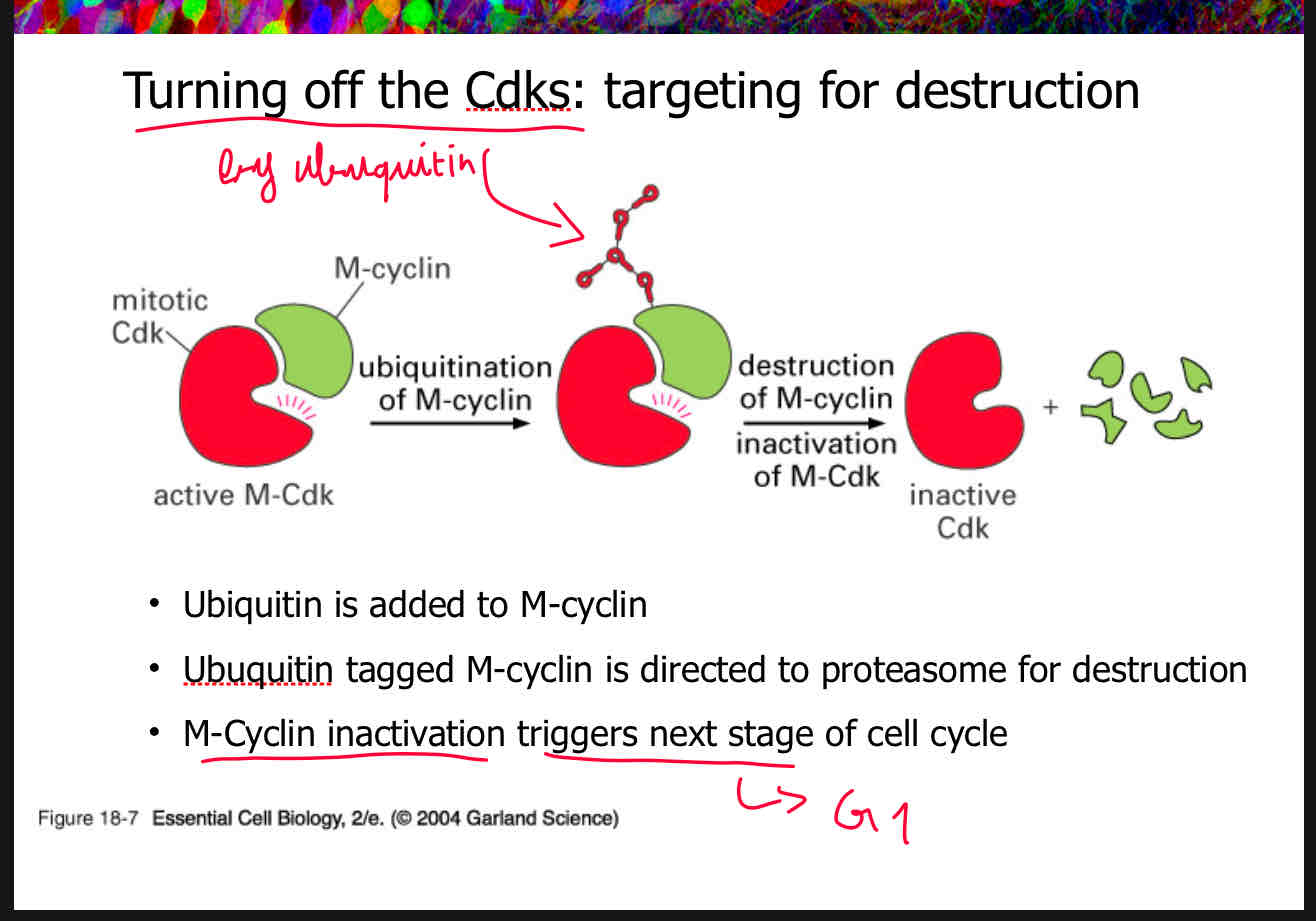
Describe how positive feedback contributes to the activation of M-Cdk and its significance in cell cycle progression.
Positive feedback contributes to the activation of M-Cdk through a self-amplifying process. Initially, inhibitory and activating kinases prepare M-Cdk, but it remains inactive. The activating phosphatase then carries out the final activation step, resulting in active M-Cdk. Once active, M-Cdk activates more of the activating phosphatase, creating a positive feedback loop
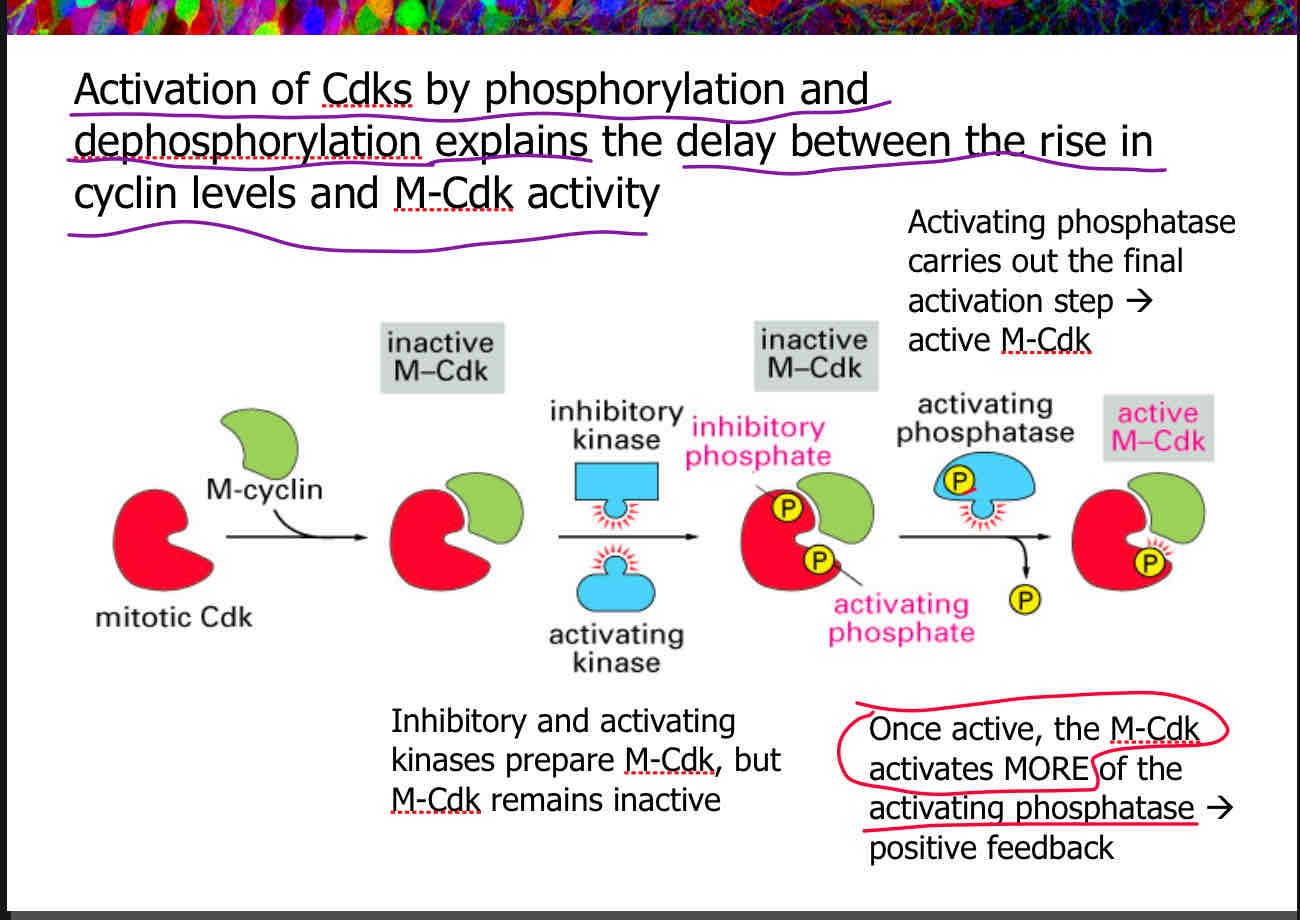
Which of the following is NOT a component of the cell cycle control system?
a) Cyclins
b) Cdks
c) Ribosomes
d) Checkpoints
C